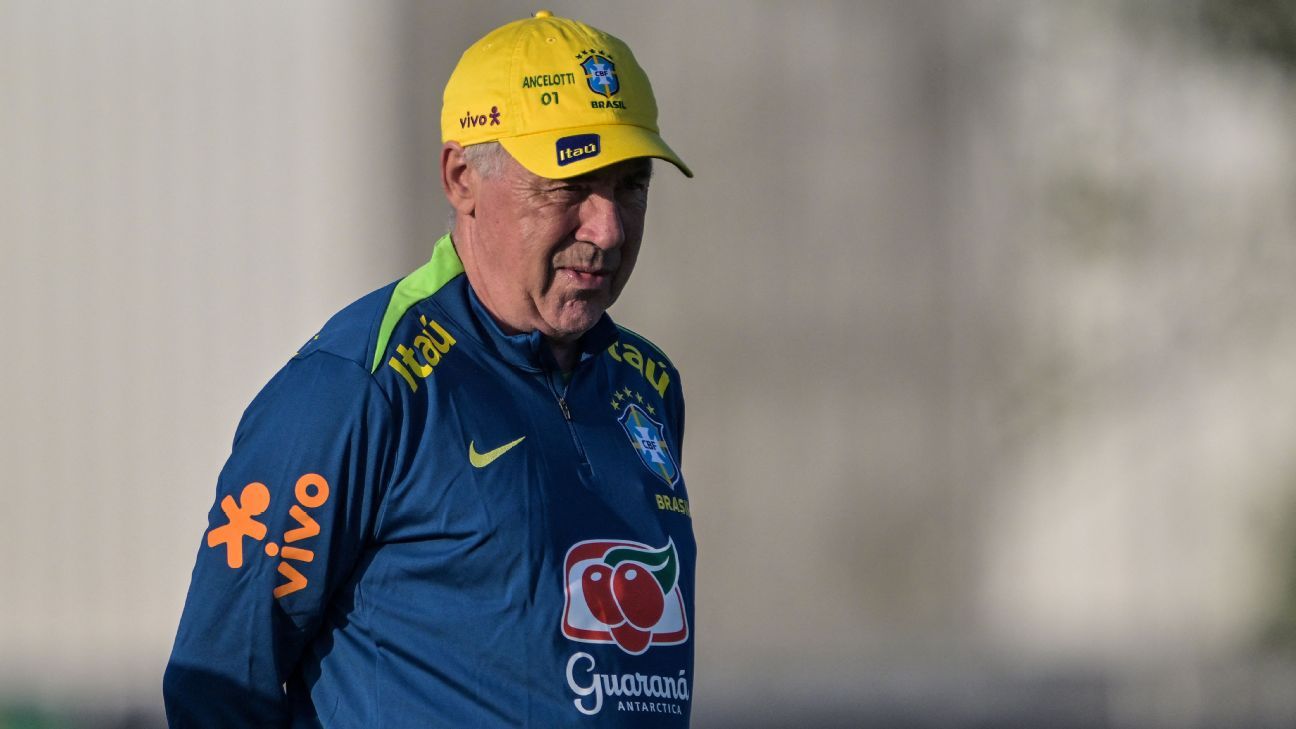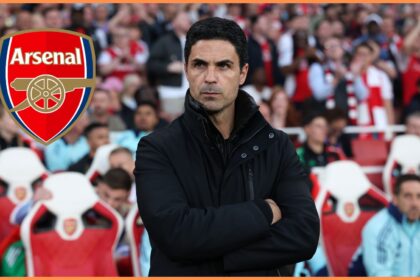On May 24, Carlo Ancelotti was still coaching Real Madrid. The very next day, he embarked on a long flight to the Americas, where he was officially introduced as Brazil’s new head coach on May 26. This role allows him to select teams for the CONMEBOL World Cup qualifiers against Ecuador and Paraguay.
On May 27, he attended a match between Botafogo and the University of Chile at the Nilton Santos Olympic Stadium in Rio de Janeiro. The following day, he visited a training facility located in the hills outside the city, where he observed a Flamengo match against Deportivo Tachira at Maracanã.
As he prepares for this new role, Ancelotti embraces the fact that he will turn 66 next week. Despite his age, he retains a youthful enthusiasm—he vividly remembers watching the 1970 World Cup in Mexico, where Italy played a memorable semi-final match against West Germany.
"We were excited to face Brazil in the final," he reminisced. "But Brazil was exceptionally strong. I recall great players like Pelé, Jairzinho, and Tostão. Italy fought hard, but ultimately, Brazil triumphed 4-1."
Ancelotti now aims to pursue his own World Cup aspirations. Having been a prominent club coach for years, he acknowledges that much of his history is intertwined with the World Cup.
"I participated in three tournaments," he noted. "In 1986, I was a player, but our campaign ended early. Four years later, I returned as a midfielder but was injured during the tournament; Italy finished third that year."
In 1994, serving as an assistant to Arrigo Sacchi, Italy reached the final but lost to Brazil in a penalty shootout. "It was a valuable experience being with my teammates," Ancelotti recalled, underscoring the choice to pursue this new position.
"My goal is to replicate that experience with the best national team in the world," he stated, expressing awareness of the differences between coaching clubs and national teams, particularly in terms of preparation time.
"I believe football isn’t overly complicated," Ancelotti said. "It’s essential for the best players to balance their talent with teamwork. Talent alone won’t secure victories; balance is crucial."
Reflecting on Brazil’s disappointing performance in their last match, Ancelotti acknowledged, "Yes, I saw it. There was no balance; while there was talent, it wasn’t utilized effectively."
He noted that Brazilian players generally possess more talent than others and emphasized the need for synergy among players. "Not every team consists of 11 talented players; commitment and teamwork are vital."
Ancelotti’s initial team selection process has included collaboration with the Brazilian Football Association’s coaching staff. Among them is a notable midfielder who last played for the national team in 2023, contributing to building a solid framework.
Regarding the team’s structure, he confirmed, "We’ll likely adopt a back four formation but can adapt as needed. Brazil has exceptional wingers, allowing us to play in various formations like 4-4-2, 4-3-3, or 4-5-1."
This flexibility is reminiscent of tactics he previously utilized with clubs, allowing players like Vinícius Júnior to thrive from different attacking positions.
"I don’t want my team to be limited to a specific style," Ancelotti explained. "Success requires a multifaceted approach, and I’m still exploring the best strategies."
He will be under contract until the end of the 2026 World Cup, where his success will be measured by whether he wins the tournament.
"I understand the expectations," he acknowledged, "but the pressure is similar to that of Real Madrid. I prefer to view it as an opportunity."
With humility and determination, Ancelotti has begun his tenure, delivering his first press conference in Spanish with plans to learn Portuguese.
While some may view him as an outsider, the CBF has made efforts to welcome him, with prominent former coaches such as Luiz Felipe Scolari symbolically passing the baton. However, criticism persists from some quarters regarding a foreign coach leading Brazil’s storied national team.
Ancelotti responded to concerns by stating, "The world is now global," while maintaining his focus on achieving positive results. Ultimately, his mission is to unite Brazil’s talent and return the Jules Rimet Trophy to the nation for the first time since 2002.
Fan Take: Ancelotti’s appointment as Brazil’s coach marks a significant moment in soccer, potentially blending fresh tactics with the rich tradition of Brazilian football. For fans, his success could reignite Brazil’s legacy in the World Cup, making the upcoming tournaments more thrilling and competitive.



